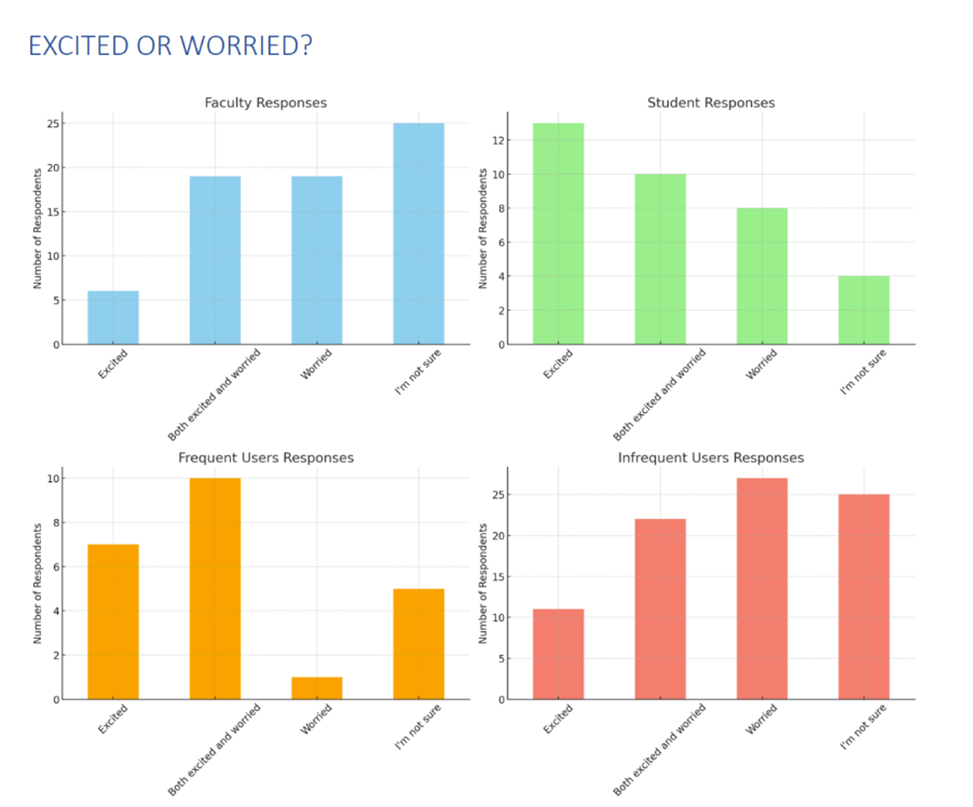by Daniel Crawford
21 February 2024
On December 14, 2023, Dean Jon Woon sent out a survey regarding the role of AI (Artificial Intelligence) in Ph.D. education. About 100 members of the Pitt graduate community responded. For the first issue of this newsletter, we wanted to use this survey to explore the work and questions that Pitt graduate students are already doing in response to AI.
Thirty-five Ph.D. students and sixty-eight faculty members replied. While only one in five respondents used AI regularly, those who did were flexible in their use, valuing opportunities the technology presents in the exploratory and research phases of writing, as well as the revising process.
The implementation of AI into the work processes of the Ph.D. student is captured in their attitudes: compared to faculty, responses from doctoral students making use of AI in their work reflected greater excitement about the technology’s potential for improving their workflow – this was particularly true for student respondents self-identified as daily users of AI. This may be a natural occurrence, seen any time a ”shiny new toy” presents itself: some will take to it, some will not, but those who do skew to the younger members of our community.

Regardless of their own use of the technology, many recognize the opportunities it provides for many avenues of academic inquiry: translation, keyword search, and reduction of repetitive tasks, to name a few mentioned by those who completed the survey.
Translation services may become more reliable through various AI products. Computer coding may seem less daunting if one has a tutor on hand at all times. Faculty members will not only be able to integrate AI into their teaching but have a system to formulate concepts and even assessments. The externalization of thought is an important aspect of the new AI tools.
But, with all this open access comes the question of regulation. Most apparently, academic integrity is a concern. Many faculty members are on high alert for AI-assisted academic dishonesty. The detection of plagiarism and academic dishonesty is, however, increasingly difficult. This will be a consideration for faculty members and an important step will be to consider the guidelines for including AI in student researches’ lives . As we create these guidelines, how do we embrace technology while still preserving the importance of original human thought?
These are big questions, whose answers will lead to more questions.
But we are graduate students and researchers – those are our favorite kind.
So be on the lookout for more newsletters and events from GAINS and join us as we tackle them.
